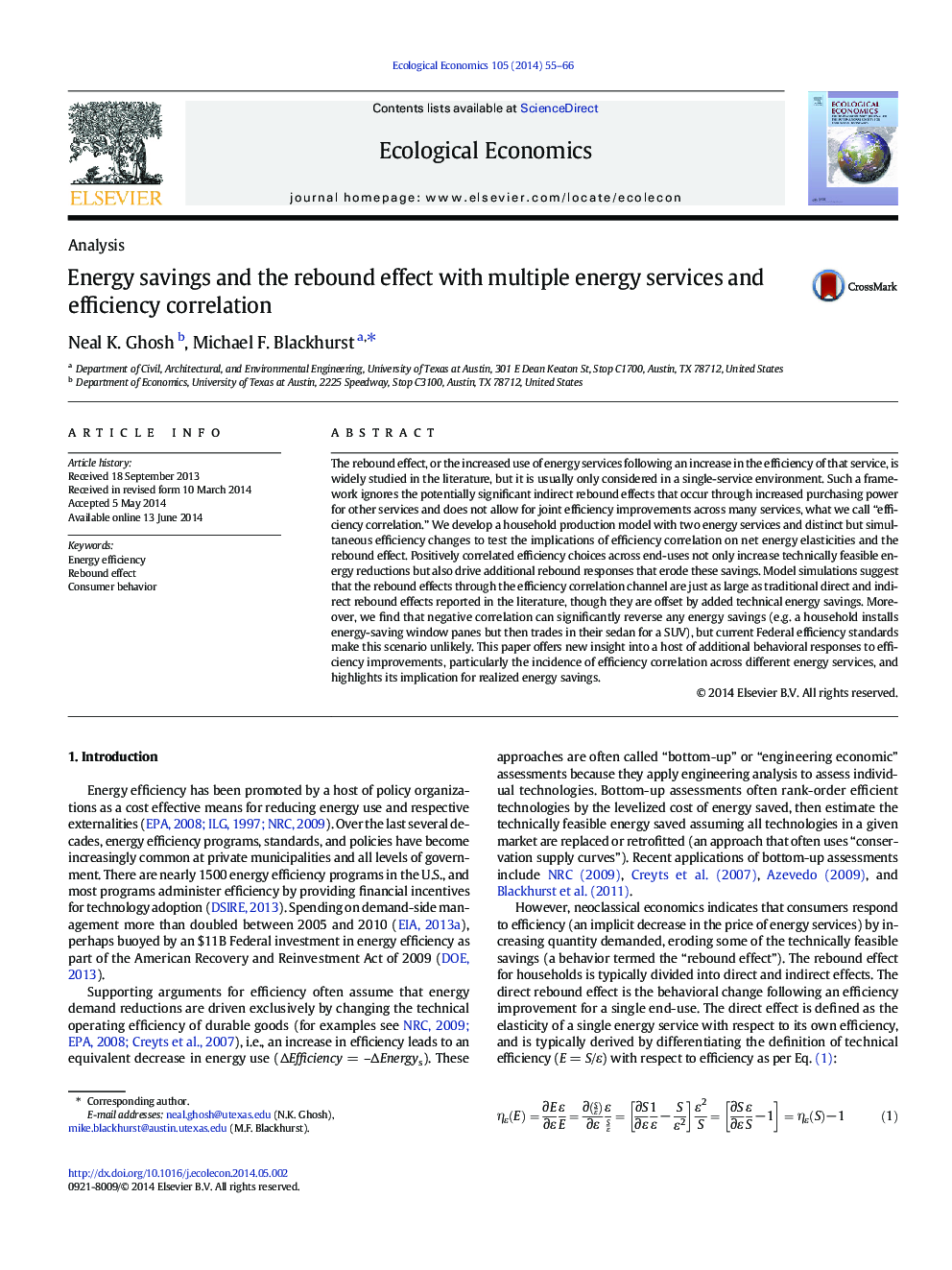| Article ID | Journal | Published Year | Pages | File Type |
|---|---|---|---|---|
| 5049704 | Ecological Economics | 2014 | 12 Pages |
The rebound effect, or the increased use of energy services following an increase in the efficiency of that service, is widely studied in the literature, but it is usually only considered in a single-service environment. Such a framework ignores the potentially significant indirect rebound effects that occur through increased purchasing power for other services and does not allow for joint efficiency improvements across many services, what we call “efficiency correlation.” We develop a household production model with two energy services and distinct but simultaneous efficiency changes to test the implications of efficiency correlation on net energy elasticities and the rebound effect. Positively correlated efficiency choices across end-uses not only increase technically feasible energy reductions but also drive additional rebound responses that erode these savings. Model simulations suggest that the rebound effects through the efficiency correlation channel are just as large as traditional direct and indirect rebound effects reported in the literature, though they are offset by added technical energy savings. Moreover, we find that negative correlation can significantly reverse any energy savings (e.g. a household installs energy-saving window panes but then trades in their sedan for a SUV), but current Federal efficiency standards make this scenario unlikely. This paper offers new insight into a host of additional behavioral responses to efficiency improvements, particularly the incidence of efficiency correlation across different energy services, and highlights its implication for realized energy savings.
